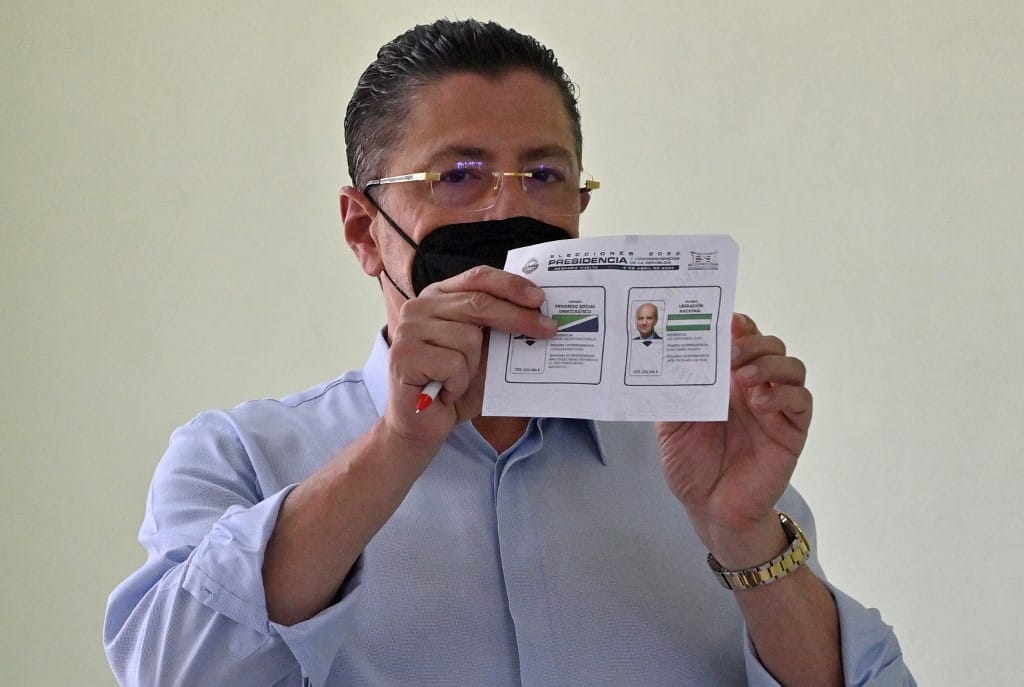Today, Costa Ricans head to the polls to elect the new President for the next four years. The race is between José María Figueres and Rodrigo Chaves, who got the highest voting percentage in the first round; Figueres obtained a 16.13% and Chaves a 9.92% of the total eligible votes. This means 73.94% did not vote for the two Presidential candidates, yet they will have to choose who’s best.
Election Day started in Australia, with a total of 147 people registered. In total, there are 52 consulates in 42 countries authorized by the Supreme Electoral Tribunal (TSE), where Costa Ricans living abroad are able to vote.
In Costa Rica, the voting process started at 6am, when the schools were open and ready to welcome all those who wanted to exercise their constitutional right.
Rodrigo Chaves began his day by posting a message on social media, where he invited Costa Ricans to vote out of hope and not fear; he asked the citizens to give him the chance to change the country for the better and eradicate corruption. Then, he travelled to Liceo Napoleón Quesada to cast his vote.
As accustomed, Jose María Figueres visited his father’s tomb, former President José María Figueres Ferrer. He left a bouquet at the grave, knelt down, said a prayer and quickly headed out to continue with his day. Afterwards, he went to La Catedral (The Cathedral) in San José, where the Archbishop celebrated mass. He then attended the press and left to continue with his agenda.
In rural areas, especially in Puntarenas and Limón, the electoral atmosphere was cold. In the first round, both provinces registered high abstentionism. Although some people choose to vote, locals resent the unfulfilled promises of previous governments, who have not cared about the development of the coasts.
Along with Guanacaste, the above-mentioned provinces have been experiencing many difficulties. The unemployment rates, the lack of opportunities, increasing crime and the absolute abandonment of the government, are some of the factors that have led the inhabitants of these areas to repudiate politicians.
On the other hand, in the Greater Metropolitan Area, former Presidents, Congressmen and public figures were seen voting. Eliecer Feinzaig and Lineth Saborío, ex-candidates, both announced they were casting their votes, though clarified they had no favorite.
Ex-Presidents Laura Chinchilla, Rafael Angel Calderón, Abel Pacheco and Miguel Angel Rodriguez were interviewed while they were arriving at their respective voting centers. Laura Chinchilla and Abel Pacheco publicly supported José María Figueres and Rodrigo Chaves, respectively.
The rest of the politicians did say they had voted, but didn’t specify who they were supporting. All of them did invite and encourage Costa Ricans to go out and vote and reminded everyone of the importance of taking care of the country and its democracy.
It is a day filled with uncertainty and there is an ambiance of tension and disillusionment among voters. The latest polls published, mentioned there was a slight advantage for Chaves, but a huge percentage of eligible voters remained undecided. The polls close at 6pm and the Supreme Electoral Tribunal (TSE) expects to have the results by 8pm.






